1. Overview
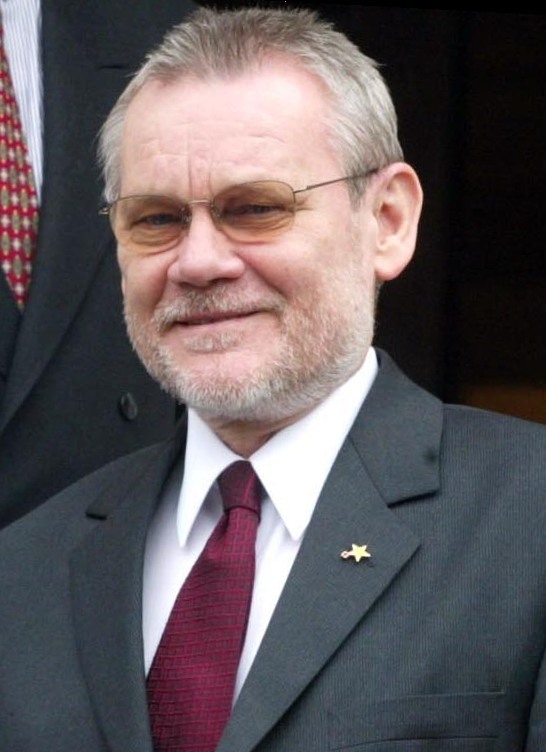
Ivica Račan (Ivica Račanîʋitsa râtʃanCroatian; 24 February 1944 - 29 April 2007) was a Croatian politician who served as Prime Minister of Croatia from 2000 to 2003, leading two centre-left coalition governments. He was the first prime minister of Croatia who was not a member of the Croatian Democratic Union (HDZ), as the opposition coalition led by his Social Democratic Party (SDP) won the 2000 Croatian parliamentary election. Račan led the SDP, which was the successor to the League of Communists of Croatia (SKH), from 1990 until his death in 2007. Before becoming prime minister, he served as Leader of the Opposition on two occasions: from the first multi-party elections in May 1990 until the formation of a national unity government in July 1991, and again from his defeat in the 2003 Croatian parliamentary election until his death.
2. Early life
Ivica Račan was born on 24 February 1944 in Ebersbach, Saxony, which was then part of Nazi Germany. His mother, Marija Draženović, was interned in a labor camp there during World War II. Both he and his mother survived the Allied bombing of Dresden, enduring days buried in the basement of a collapsed building. After the war concluded, Račan returned to Croatia. He spent his childhood and adolescence in Slavonski Brod before moving to Zagreb to pursue higher education. In 1970, he graduated from the Zagreb Faculty of Law at the University of Zagreb.
3. Political career
Ivica Račan's political journey began within the League of Communists of Croatia (SKH), the Croatian branch of the League of Communists of Yugoslavia (SKJ), and saw him lead the transformation of the party into a modern social democratic force.
3.1. Early career (League of Communists)
Račan entered politics in the People's Republic of Croatia in 1961, joining the League of Communists of Croatia (SKH). During his youth, he served as the president of the communist youth organization in the Slavonski Brod gymnasium. From 1963 to 1974, he worked for the Yugoslav institute of social research, where he focused on studying and researching the concept of Workers' self-management. His professional political career gained momentum in 1972 when he joined the central committee of the Croatian League of Communists. This opportunity arose after six previous officials were removed due to their involvement in the 1971 Croatian Spring, creating vacant seats. Within the SKH, he was a member of the culture committee and served as the head ideology commissioner. From 1982 to 1986, Račan held the position of director of the "Josip Broz Tito" political school in Kumrovec. In 1986, he was elected to represent the SKH in the presidency of the Yugoslav League of Communists in Belgrade.
In the late 1980s, during the period of the Anti-bureaucratic revolution, significant tensions emerged between supporters and opponents of Slobodan Milošević. In the autumn of 1989, the Croatian communists elected Račan as the president of the SKH, largely because he championed the rights of republic autonomies, which the Milošević establishment sought to abolish. Račan subsequently led the Croatian delegation at the 14th SKJ party congress, held in late January 1990. This congress was heavily influenced by Milošević's supporters, and the Slovenian and Croatian delegations found their efforts to reach a compromise on Yugoslavia's political future consistently outvoted. Their proposals for various political reforms and constitutional amendments, primarily aimed at decentralizing the federation, were all rejected. Ultimately, the Slovenian delegation announced its withdrawal from the congress. Milošević attempted to persuade Račan to remain, but Račan responded that a communist party without the Slovenes was unacceptable. With the departure of the Croatian delegation, it became impossible to reconvene the congress.
3.2. Transition and Opposition Leader
Under Račan's leadership, the SKH underwent a significant transformation, rebranding itself as the Party of Democratic Reform (Stranka demokratskih promjenaParty of Democratic ReformCroatian) in February 1990. The party then participated in the 1990 Croatian parliamentary election as SKH-SDP, securing 26 percent of the votes and finishing second behind the right-wing Croatian Democratic Union (HDZ). During the 1990 election campaign, Račan generated some controversy by referring to the HDZ as a "party of dangerous intentions."
Despite his party's electoral defeat, they remained the second-largest party in the Sabor, marking Račan's continuation of his political career as the first Leader of the Opposition in the history of modern Croatia. However, the SKH-SDP rapidly diminished in influence; a majority of its members, including high-ranking officials, defected to the HDZ. The subsequent breakup of Yugoslavia, the rebellion of ethnic Serbs, and the ensuing war that erupted in 1991 further radicalized the Croatian public. In these challenging circumstances, Račan prioritized the survival of his party over directly challenging Franjo Tuđman's rule, even if it meant tolerating some of Tuđman's more controversial policies, such as the nationalisation of workers' owned enterprises and privatisation.
In this environment, Račan ceded the opposition leader title to Dražen Budiša of the Croatian Social Liberal Party (HSLS). The SDP narrowly managed to pass the electoral threshold in the subsequent 1992 Croatian parliamentary election, but this success allowed it to establish itself as the strongest social democratic option in the country. In 1994, the SDP absorbed the smaller Social Democrats of Croatia (SDH) party, solidifying its position as one of the two main alternatives to Tuđman's HDZ, alongside the HSLS. In the same year, Miko Tripalo, then chairman of the Social Democratic Action of Croatia (SDAH), attempted to form an all-left party coalition across the Croatian political spectrum. However, Račan and the SDP's central committee rejected this proposal, leading the SDP to become the sole major left-wing party.
Following the conclusion of the Croatian War of Independence in 1995, Croatian voters increasingly focused on social issues. In this shifting political landscape, the SDP gradually consolidated support at the expense of other opposition parties, particularly the HSLS. This trend became apparent in the 1995 Croatian parliamentary election. The SDP's strong performance, finishing second in the 1997 Croatian presidential election, cemented its status as the primary opposition party.
4. Prime Minister (2000-2003)
Ivica Račan's premiership marked a significant shift in Croatian politics, bringing a centre-left coalition to power for the first time since independence and initiating a period of reform and international reintegration.
4.1. Government Formation and Coalition
In August 1998, Ivica Račan and Dražen Budiša, then leaders of the SDP and HSLS respectively, signed a coalition agreement. This alliance proved successful, leading to their victory in the 2000 Croatian parliamentary election and dislodging the HDZ from power after a decade. Following the election, Račan assumed the office of Prime Minister of Croatia and formed a six-party centre-left government. This coalition included ministers from his own SDP, the HSLS, the Croatian Peasant Party (HSS), the Liberal Party (LS), the Croatian People's Party (HNS), and the Istrian Democratic Assembly (IDS). This marked the first coalition government in modern Croatian history, reflecting a diverse political spectrum.
4.2. Domestic Policy and Reforms
Račan, alongside the newly elected president Stjepan Mesić, was initially seen as a new, reformist leader symbolizing a departure from Croatia's previous authoritarian and nationalist tendencies. While committed to democratic principles, Račan faced challenges in efficiently managing a government composed of six distinct parties. His governing style, sometimes characterized by the phrase "Odlučno moždaDecisively maybeCroatian", was marked by a need for compromise, which at times limited the government's ability to fully commit to certain policy directions and led to internal factional struggles.
During his tenure, significant domestic reforms were enacted. The Constitution of Croatia was amended, transforming Croatia from a semi-presidential system into a parliamentary democracy, thereby granting more power to the parliament and the prime minister. Račan's government also introduced greater transparency, notably by holding "open-doors days" at the government headquarters and scheduling regular press conferences, a stark contrast to previous administrations that often avoided media scrutiny.
Economically, Račan's government oversaw a period of growth. The country's opening to the West attracted new capital inflows, which helped to stimulate Croatia's GDP growth, reaching approximately 5% per year during his premiership-a notable improvement compared to preceding years. The government also initiated a series of reforms within the public and government sectors. Large-scale infrastructure projects were undertaken, including an affordable housing program and the construction of the A1 highway, a crucial link connecting Zagreb and Split that was highly desired for its importance to tourism.
4.3. Foreign Policy and EU Integration
Račan's government achieved significant successes in foreign policy, particularly in reintegrating Croatia into the international community and advancing its path towards European Union membership. He effectively steered Croatia out of the semi-isolation it experienced during the Tuđman era, firmly setting the country on the course for accession to the European Union.
Efforts were also made to improve regional relations, notably by beginning to heal the rifts between Croatia and its neighbor Serbia and other former Yugoslav republics. In a gesture of reconciliation and acknowledging historical events, Račan visited Bleiburg, Austria, in 2002 and attended the annual commemoration of the Bleiburg repatriations. These initiatives underscored his commitment to a more open and cooperative foreign policy.
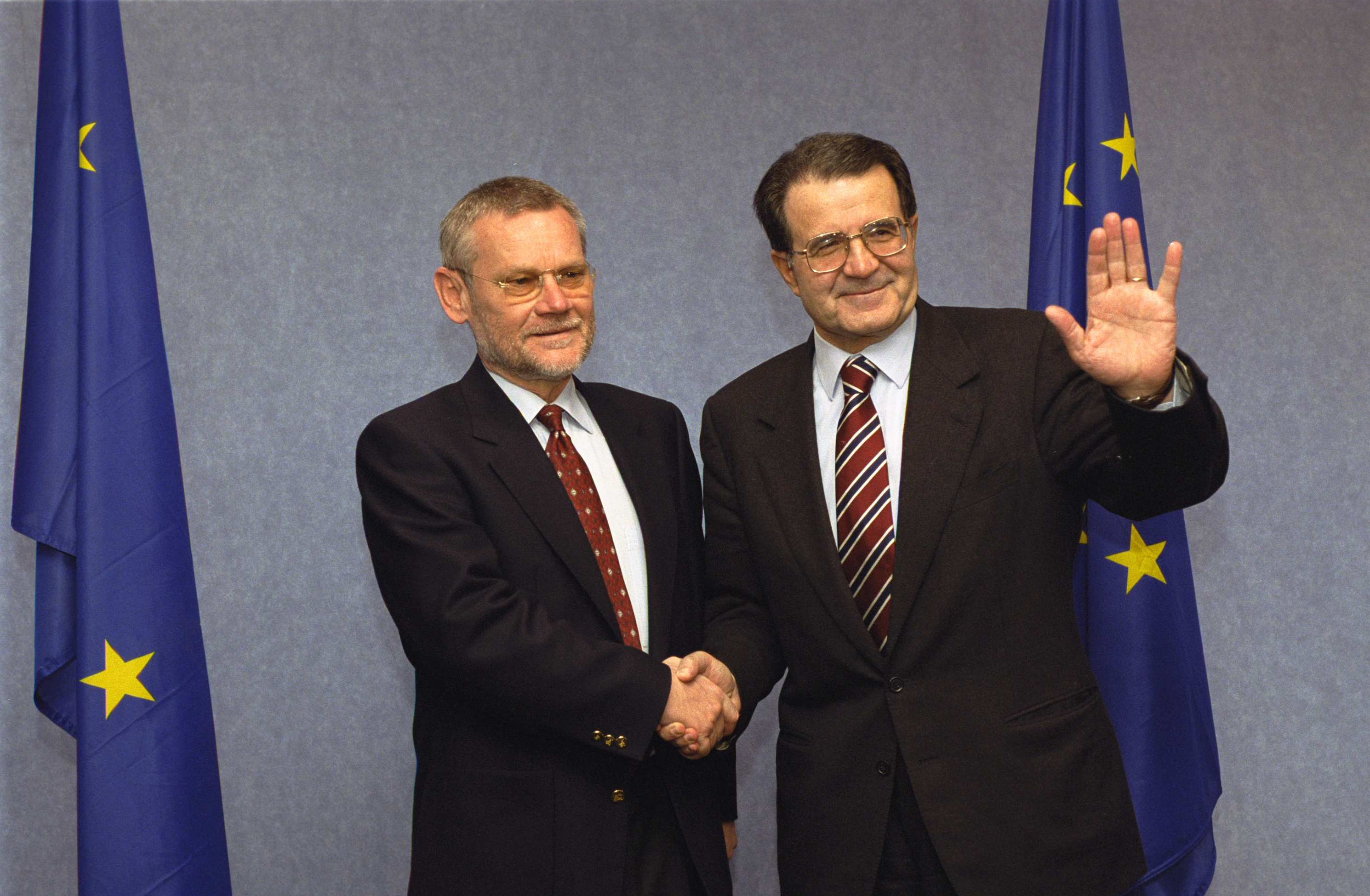
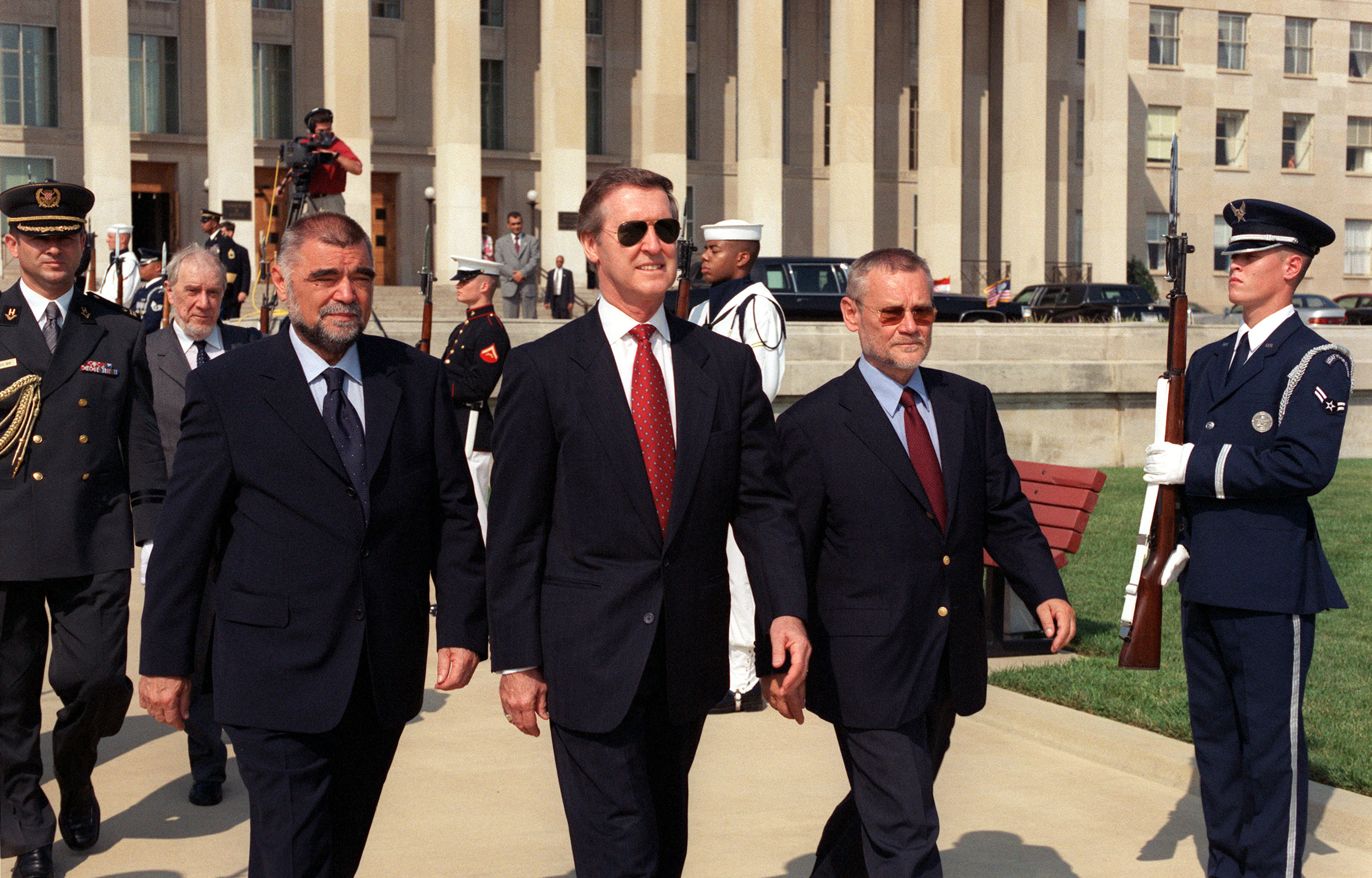
4.4. Challenges and Controversies
Račan's government faced numerous political challenges, internal coalition disputes, and controversies, particularly concerning cooperation with the International Criminal Tribunal for the former Yugoslavia (ICTY), issues of national sovereignty, and border disputes. These issues often tested his leadership and had implications for human rights and democratic processes.
A significant challenge arose when his main coalition partner, Dražen Budiša, lost the 2000 Croatian presidential election. This diminished Budiša's influence within the government, leading to frustration and increasing friction. This ultimately caused a rift with Budiša, who adopted a more nationalist stance, particularly regarding ICTY indictments against Croatian Army generals. This internal division began to affect other government policies. The Istrian Democratic Assembly (IDS) was the first party to leave the coalition in June 2001.
Račan formally resigned on 5 July 2002, after the HSLS, a key coalition partner, obstructed the ratification of a crucial agreement with Slovenia concerning the co-owned Krško Nuclear Power Plant. This led to a split within the HSLS, with its main faction leaving the ruling coalition, while a dissenting faction formed a new party, LIBRA, which chose to remain in government. This realignment allowed Račan to form a slightly modified government that continued in power until the next elections in 2003.
His government also endured significant criticism regarding ICTY investigations. From the right-wing political spectrum, he was accused of being unpatriotic and a traitor to national interests. Conversely, from the liberal-left, he was criticized for not doing enough to combat right-wing extremism and for insufficient efforts in de-Tuđmanization. In February 2001, Račan faced massive public outrage when the ICTY issued an indictment for Mirko Norac, who was then a fugitive. The situation escalated to a peak when 100,000 people protested on the Split Riva against the government, raising fears of a potential Coup d'état. The incident was defused when Račan reached an agreement with Carla Del Ponte, ensuring that Norac would be prosecuted in Croatia.
In July 2001, an indictment was issued for Ante Gotovina. Račan delayed accepting it, believing that some parts of the indictment were inaccurately written and cast a negative light on the Croatian War of Independence. Since Gotovina was not arrested or under surveillance at the time, he managed to escape into exile, remaining at large until his arrest in 2005. This incident was a significant setback for Croatia's negotiation process with the EU. The final major ICTY-related scandal during his term occurred in September 2002 with the indictment of Janko Bobetko. Bobetko was in poor health at the time and refused to leave his home, surrounding himself with armed individuals. Račan feared that Bobetko's death during transport to The Hague could incite a national riot among the right-wing population. Račan rejected the indictment, placing Croatia at risk of international isolation. He eventually persuaded Bobetko to leave his home and go to the hospital. The situation remained tense until Bobetko's death in April 2003, after which the indictment was dropped, and Croatia's negotiations with the EU continued.
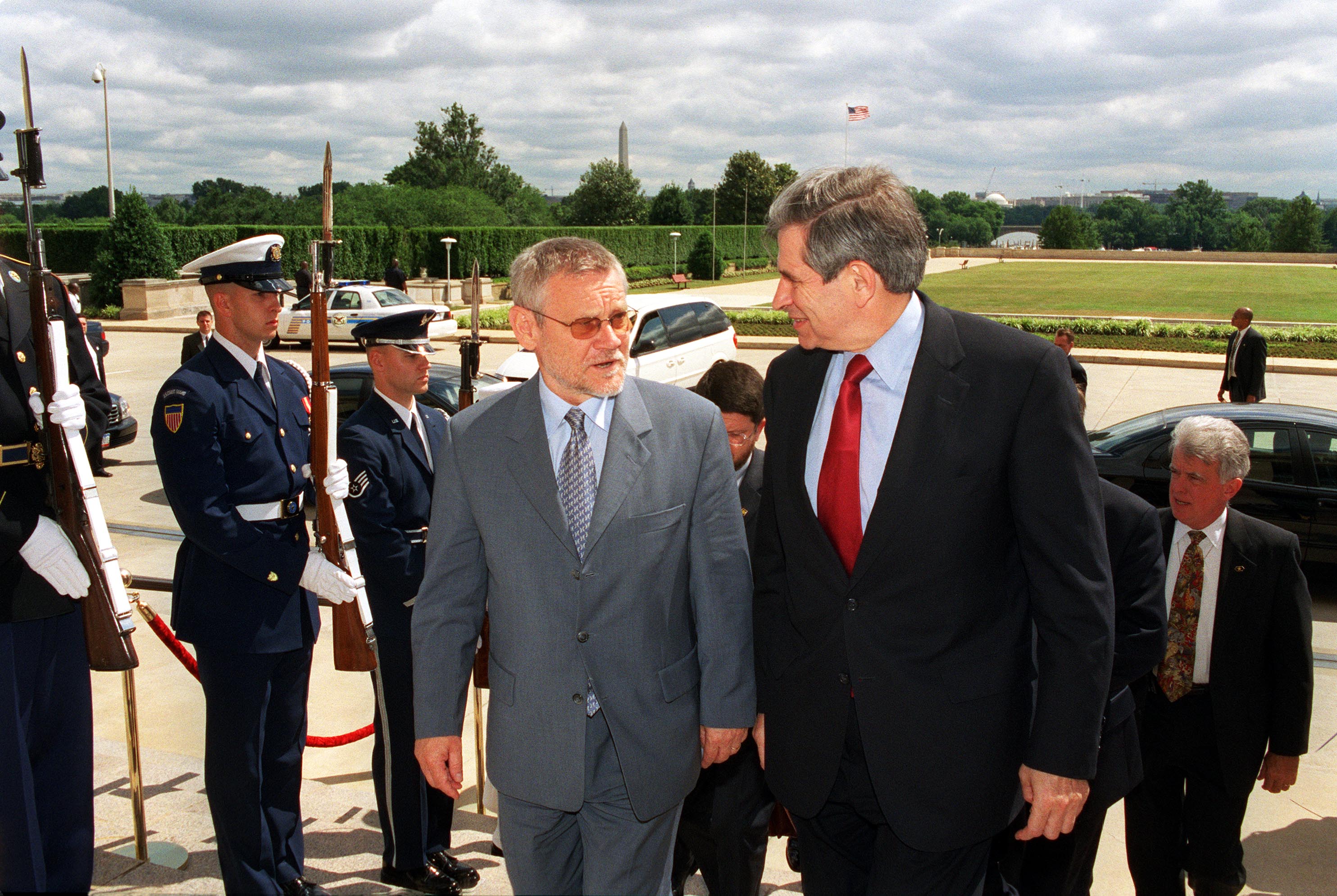
Račan also faced criticism for his 2001 ratification agreement with Slovenia concerning the Gulf of Piran. Aiming to improve relations with Slovenia, which were crucial for EU negotiations, he reached an agreement that would have granted Slovenia 80% of the gulf territory and an exit to international waters, while Croatia would retain its border with Italy. The agreement was heavily attacked by the public, and the then-parliament speaker, Zlatko Tomčić, claimed he was unaware of the extent of territory ceded to Slovenia until a new map of the gulf appeared in the newspaper Slobodna Dalmacija. The agreement was subsequently rejected and not signed by the prime minister, thus never coming into effect.
5. Post-premiership and Party Leadership
Following the 2003 Croatian parliamentary election in November, Račan's centre-left coalition lost its parliamentary majority. The SDP did not form a broad coalition as it had in the previous elections, which ultimately cost them votes. The HSS decided to run independently and subsequently joined the party that won the elections. This tactical decision proved detrimental for the SDP. Additionally, Račan rejected a coalition with the HNS for undisclosed reasons, which also turned out to be a mistake. Račan conceded defeat shortly after the election results were announced. His former coalition partners criticized him for conceding so early, believing they could have attempted to form another grand coalition, but Račan argued that such an outcome was unlikely and, even if achieved, would lack stability. He officially ceased to be prime minister on 23 December 2003, when the Croatian Parliament approved his successor, Ivo Sanader of the HDZ.
Despite the electoral defeat, the SDP remained the most popular opposition party in opinion polls, and Ivica Račan continued to be regarded as the leader of the Croatian opposition. While he had been perceived as indecisive during his time as prime minister, he demonstrated considerable skill in maintaining his leadership of the SDP for over fifteen years. In 2006, Račan publicly announced that he did not intend to seek a new term as party president, signaling a potential shift in the party's future leadership.
6. Illness and death
On 31 January 2007, Ivica Račan publicly announced that he would temporarily withdraw from public life due to health reasons. In his absence, SDP vice-president Željka Antunović assumed the role of party chairperson. Račan's health rapidly deteriorated, and he was diagnosed with cancer in his shoulder. In February, he underwent two surgeries to remove cancerous growths from his kidney, urinary tract, and shoulder. By 4 April, it was announced that tests had revealed metastases in his brain, indicating a severe progression of his illness.
On 11 April, facing the gravity of his condition, Račan stepped down as the leader of the SDP. In his resignation message, he stated: "Colleagues, friends, comrades! Faced with a difficult illness I continue my fight for life but it is time to thank you for our joint work and your support in my political career. We were building together a Social democratic party and I am proud of what we have achieved. I am proud of the social democratic values - morals, work, honesty, tolerance - that we have forever engraved into the political life of our country. I have done as much as I knew and all that I could. With this, I resign from the party presidency and you will have to continue without me. Find a new strength at the election convention for I am sure that it exists in SDP."
On the morning of 12 April 2007, his condition was described as "critical" due to complications that arose after several surgical procedures to remove the cancer in his right shoulder. On that same day, the Zagreb radio station Radio 101 erroneously reported his death, based on "unofficial information from two sources within the party," but SDP officials quickly denied this. Following the false report, he was confirmed to be in a critical condition, unable to communicate, and under heavy sedation.
Ivica Račan died on 29 April 2007, at 3:05 am, at the Clinical Hospital Centre Zagreb. The reported cause of death was kidney cancer that had spread to his brain. He was buried on 2 May at the Mirogoj Cemetery crematory. As per his request, only twelve of his closest friends and family members, including his wife and both sons, were present at the burial. A separate public commemoration was organized by the SDP at the Lisinski Concert Hall, which was attended by the president, prime minister, numerous other dignitaries, and many party members.
Throughout the three months of Račan's illness, Croatian media regularly reported on his status due to immense public interest. Račan himself made no public appearances after his initial announcement of illness, but the media was consistently updated through SDP spokespeople. This level of transparency regarding a public figure's health was unprecedented in Croatia, especially when contrasted with the guarded details surrounding the illness and death of the late President Tuđman. When Račan resigned as party leader, he did not indicate a preference for his successor, instead requesting that an election convention be held for the party membership to elect a new leader. This decision was widely speculated to be significant for the party's performance in the upcoming 2007 Croatian parliamentary election.
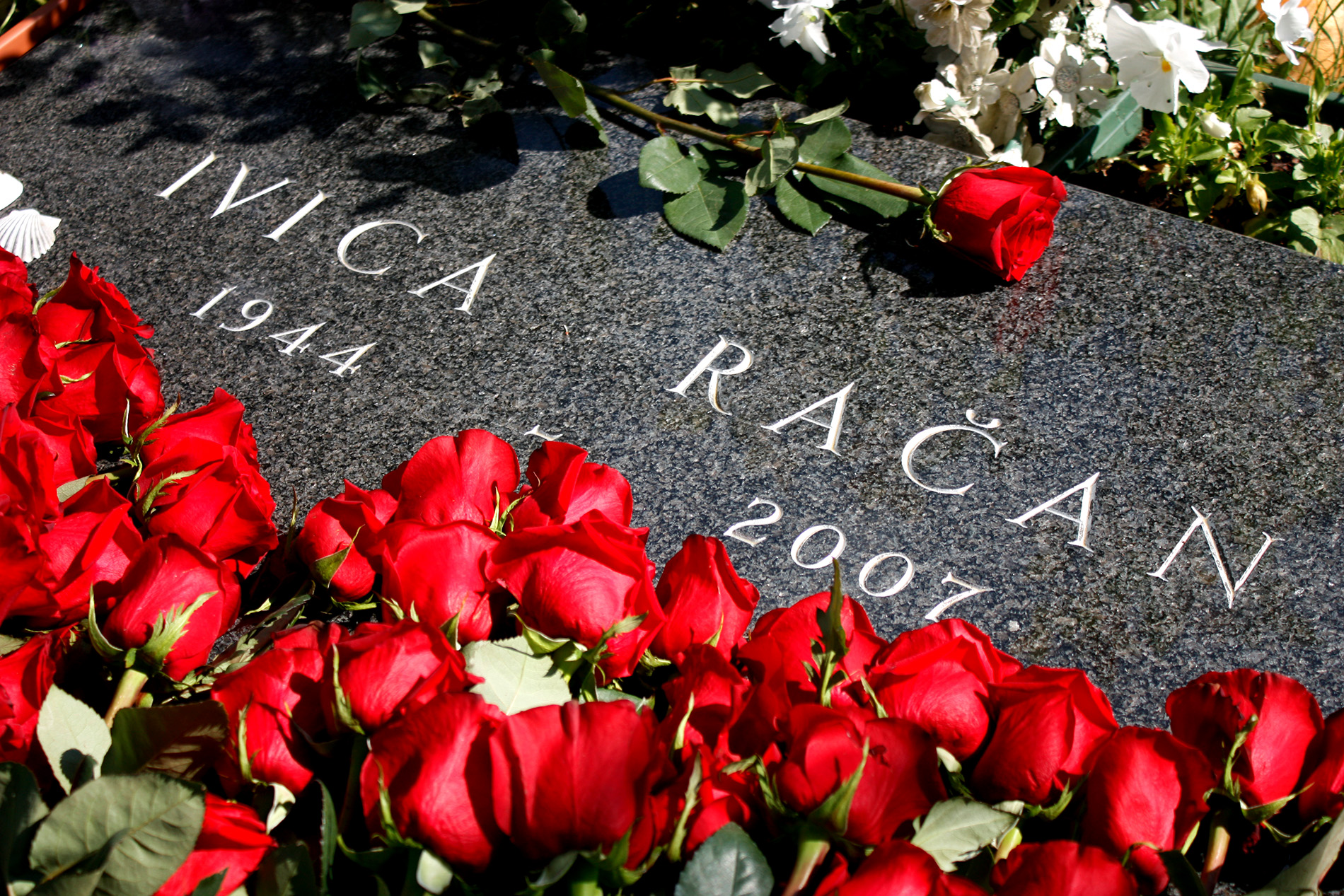
7. Personal life
Ivica Račan was married three times and had two sons, Ivan and Zoran, from his first marriage. His first wife, Agata Špišić, was a judge with the Croatian Constitutional Court. His second wife, Jelena Nenadić, worked as a librarian at the Kumrovec political school during the 1980s. His third wife, Dijana Pleština, was a professor of political science at the College of Wooster in Ohio. Račan was a self-declared agnostic.
8. Assessment and Legacy
Ivica Račan's political career is largely defined by his pivotal role in Croatia's transition from a one-party communist state to a multi-party democracy and his efforts to integrate the country into European structures. His leadership of the League of Communists of Croatia during the crucial period of Yugoslavia's dissolution and his subsequent transformation of the party into the Social Democratic Party were instrumental in establishing a viable left-wing political force in independent Croatia. He is widely credited with guiding the SDP through challenging opposition years, ensuring its survival and eventual rise to power.
As Prime Minister, Račan's government was responsible for significant democratic reforms, including the constitutional amendment that shifted Croatia from a semi-presidential to a parliamentary system, thereby strengthening democratic institutions. His commitment to government transparency, exemplified by "open-doors days" and regular press conferences, marked a departure from previous, more opaque administrations and contributed to a more open political culture. Economically, his government oversaw a period of notable GDP growth and initiated major infrastructure projects like the A1 highway and an affordable housing program, aiming to modernize the state and address social equity.
In foreign policy, Račan successfully brought Croatia out of the international isolation it experienced under the Tuđman era, firmly setting the country on the path towards European Union membership. His efforts to improve relations with neighboring countries, including Serbia, were crucial for regional stability and Croatia's international standing.
However, Račan's premiership was not without its challenges and criticisms. His "decisively maybe" leadership style, characterized by a need for consensus among a diverse six-party coalition, sometimes led to perceived indecisiveness and internal disputes that hampered the government's efficiency. His handling of ICTY indictments, particularly those involving high-ranking Croatian generals, drew intense criticism from both nationalist and liberal factions. While navigating immense public pressure and nationalist sentiment, his cautious approach to cooperation with the ICTY, such as delaying the acceptance of the Ante Gotovina indictment, had implications for Croatia's EU accession process. Similarly, his attempt to resolve the Gulf of Piran border dispute with Slovenia, though aimed at improving bilateral relations crucial for EU integration, faced strong public and parliamentary opposition, ultimately failing.
Despite these controversies and the challenges of coalition governance, Račan's lasting legacy is his contribution to solidifying Croatia's democratic development and its European orientation. He is remembered as a pragmatic and principled politician who, despite facing immense pressure during a volatile period, maintained a commitment to social democratic values, human rights, and the rule of law, significantly shaping modern Croatian politics and society.